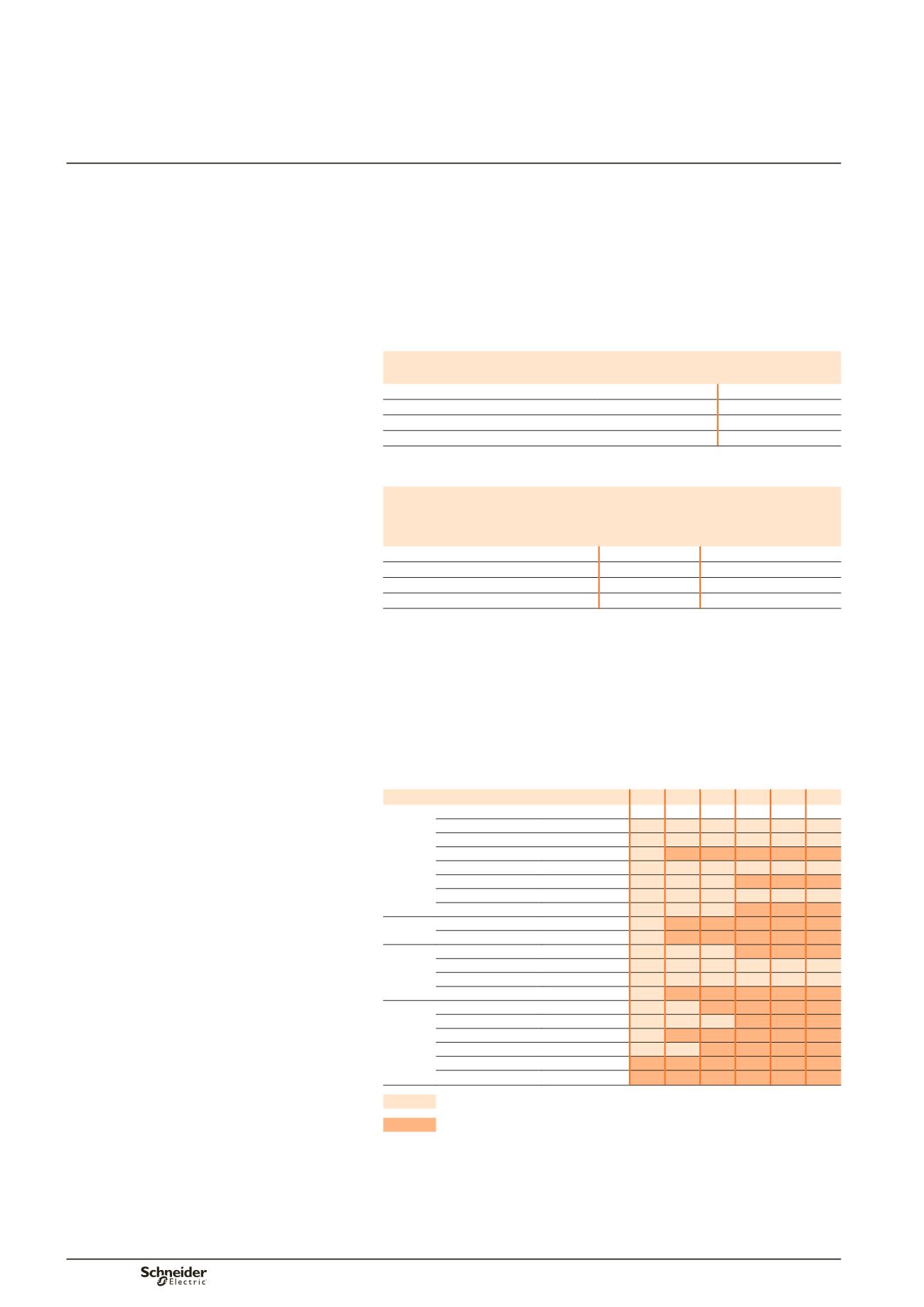

198
Schneider Electric enclosures comply with standard IEC 62208 for empty
enclosures. The sheet metal used for Schneider Electric enclosures receives an
anti-corrosion epoxy electrophoresis treatment and a coating of a thermosetting,
polyester-resinmodified epoxy powder for colour and appearance.
This two-coat system provides excellent finish and corrosion protection.
The characteristics of this coating are much better than those of traditional epoxy
powders:
b
b
improved colour stability
b
b
wider operating temperature range.
Mechanical properties of enclosures
Static load on doors, wall-mounted and floor-standing enclosures and
cubicles
Floor-standing enclosure
64 kg
Wall-mounted enclosure
48 kg
Floor-standing enclosure door
4 kg
Wall-mounted enclosure door
4 kg
Mechanical properties of powder coated surfaces
Test conditions
Test piece made of 1 mm thick steel sheet, degreased, iron phosphated, final
rinsing with 100000
W
cm DI water, 15 microns of anti-corrosion
electrophoresis treatment and 35 microns of powder paint.
Adhesion (cross-hatch and pull-off)
class 0 required (ISO 2409)
Impact strength
(1)
> 1 kg/50 cm (ISO 6272)
Mandrel bending test
(2)
< 10 mm
(ISO 6860)
Persoz hardness
300 s
(ISO 1522)
(1)
No cracking of the paint film after dropping a weight of one kilogram on the test piece from
a height of 50 centimetres.
(2)
Film cracks over a length of 10 millimetres maximum.
Chemical properties of powder coating
Tests carried out at ambient temperature on phosphated test pieces coated
with a 150 to 200 micron film.
Test duration (months)
2 4 6 8 10 12
Acids
Concentration
Acetic
20 %
Sulphuric
30 %
Nitric
30 %
Phosphoric
30 %
Hydrochloric
30 %
Lactic
10 %
Citric
10 %
Bases Soda
10 %
Ammonia
10 %
Water
Distilled water
Seawater
Tap water
Diluted bleach
Solvents Petrol
High alcohols
Aliphatics
Aromatics
Ketones, esters
Tri-perchlorethylene
Film intact.
Film damaged (blisters, yellowing, loss of shine).
Artificial ageing test on
powder coating
Test conditions: two tests carried out on the same
1 mm thick steel sheet test piece.
b
b
cyclical damp-heat test:
v
v
as per standard IEC 68-2-30
-- six 24-hour cycles at temperatures higher than 40 °C
b
b
continuous resistance to neutral salt mist:
v
v
the tests were carried out over a period of 400 hours,
far more than the 48 hours required by the standard for
indoor installations
v
v
as per standard IEC 68-2-11 and ISO 7253
-- 400 hours without blistering for normal surface on
test piece
-- 250 hours for a scratched surface.
Evaluation of corrosion as per ISO 4628:
b
b
adhesion: class y 1
b
b
blistering: degree 1 dim.1
b
b
rusting: Ri 1
b
b
cracking: class 1
b
b
flaking imp. 1 dim. 1
b
b
propagation of corrosion under scratch with respect
to the scratch axis: 3 mm max.
Additional information
Enclosure characteristics
Properties ofmetal enclosures


















